The "jumping centipede":
$num = 10;
$norm = 0;
$damp = 1.4;
foreach $i (1..$num) {
$norm += 1/sqrt($damp**$i);
}
$xx = -120;
$nballs = 16;
$height = 80;
foreach (1..$nballs) {
$bound1 = 0;
$bound2 = 0;
$bound3 = 0;
$height += 40/$nballs;
$xx += 15;
$i=0;
while ($bound2 < 100) {
$i++;
$bound2 += 100/$norm/sqrt($damp**$i)*sqrt($height/100);
$bound3 = $bound1 + 100/$norm/sqrt($damp**$i)/2*sqrt($height/100);
point({"coordinates" => [[$xx,-50],[$xx,$height/$damp**($i-1)-50]],
"interval" => [$bound1,$bound3]},
{"coordinates" => ['$t','(1-$t)**2']});
point({"coordinates" => [[$xx,$height/$damp**($i-1)-50],[$xx,-50]],
"interval" => [$bound3,$bound2],
"staythere" => 0},
{"coordinates" => ['$t','$t**2']});
$bound1 = $bound2;
}
}
|

|
An example from physics: elliptically polarized wave:
$p2 = point({"type" => "empty",
"coordinates" => [[50,50],[-100,-100]]});
track("c1",{%{$p2},"color" => "Blue"});
$total = 10;
foreach $n (0..($total-1)) {
$interval = [100/$total*$n,100],
$subtr = 1-1/$total*$n;
$p1 = point({"type" => "empty",
"coordinates" => [[]],
"interval" => $interval},
{"coordinates" => ['50*cos(3*pi*$t*'.$subtr.
') + 50 - 150*($t*'.$subtr.')',
'70*sin(3*pi*($t*'.$subtr.
'))+ 50 - 150*($t*'.$subtr.')']});
track("cx".$n,{%{$p1},"color" => "Red"});
line({"arrow" => 1,
"foot" => [[]],
"head" => [[]],
"interval" => $interval
},
{"foot" => ['50-150*($t*'.$subtr.')',
'50-150*($t*'.$subtr.')'],
"head" => ['50*cos(3*pi*($t*'.$subtr.
')) + 50 - 150*($t*'.$subtr.')',
'70*sin(3*pi*($t*'.$subtr.
'))+ 50 - 150*($t*'.$subtr.')']});
}
|
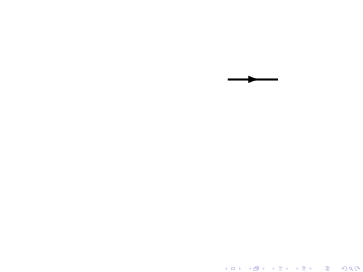
|
Here we are randomly distributing 1000 points. However, we want to do this
only in the first frame of the movie. The rest is done by the evolution.
The variable $aximate::IGLOB counts the frames, starting from 0.
foreach $i (0..1000) {
if ($aximate::IGLOB==1) {
$r = 100*sqrt(rand(1));
$phi = 2*pi*rand(1);
@xpos1 = (@xpos1,$r*cos($phi));
@ypos1 = (@ypos1,$r*sin($phi));
@ampx = (@ampx,50*rand(1));
@ampy = (@ampy,50*rand(1));
@phase = (@phase,2*pi*rand(1));
}
point({"type" => "ccirc",
"color" => "Red",
"bethere" => 0,
"radius" => [[3]],
"coordinates" => [[]],
"polar" => [[]]},
{"coordinates" => [$xpos1[$i].'+'.$ampx[$i].'*sin(2*pi*$t+'.
$phase[$i].')',
$ypos1[$i].'+'.$ampy[$i].'*cos(2*pi*$t+'.
$phase[$i].')']});
}
|
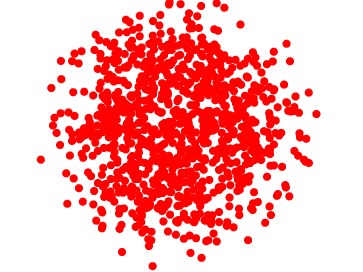
|
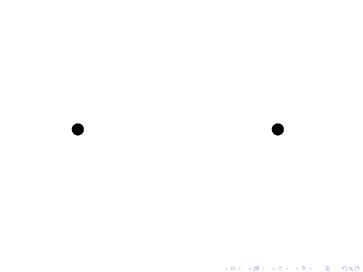 |
stoss1 – a simple scattering reaction |
basic elements |
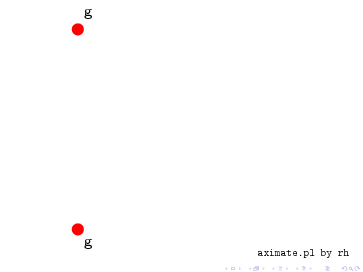 |
ggh1 – a Feynman diagram
(gluon fusion) |
connecting objects; attaching text |
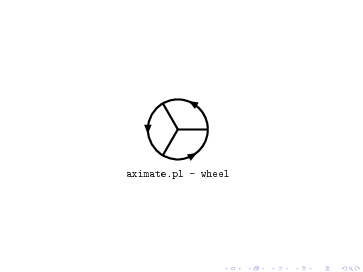 |
wheel1 – a spinning wheel |
using do-loops; "circular"=1 |
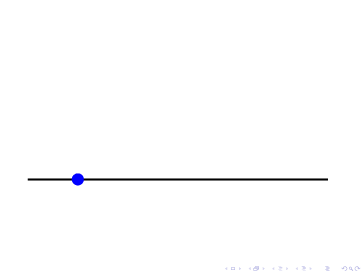 |
wurf1 – throwing a ball |
changing time-evolution |
 |
fallingdisk1 – falling disk |
just for fun |
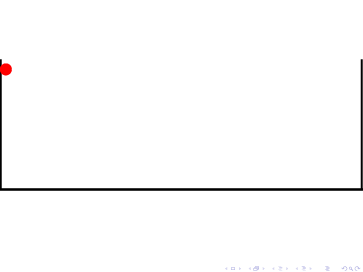 |
jumpingball2 – jumping ball |
do-loop; evolve; "loop"=1 |
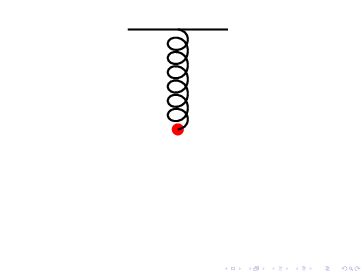 |
federpendel1 – mass on a spring |
evolve |
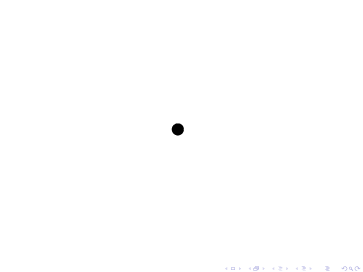 |
spiral1 – |
polar coordinates |
 |
fadenpendel1 – mass on a string |
evolve |











